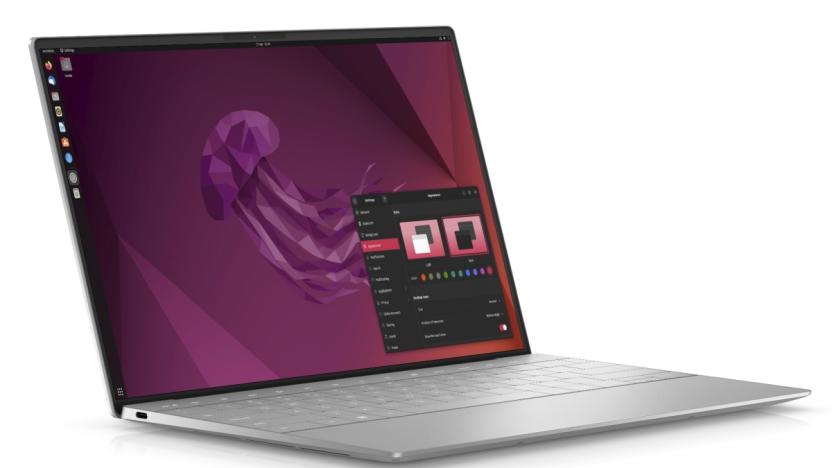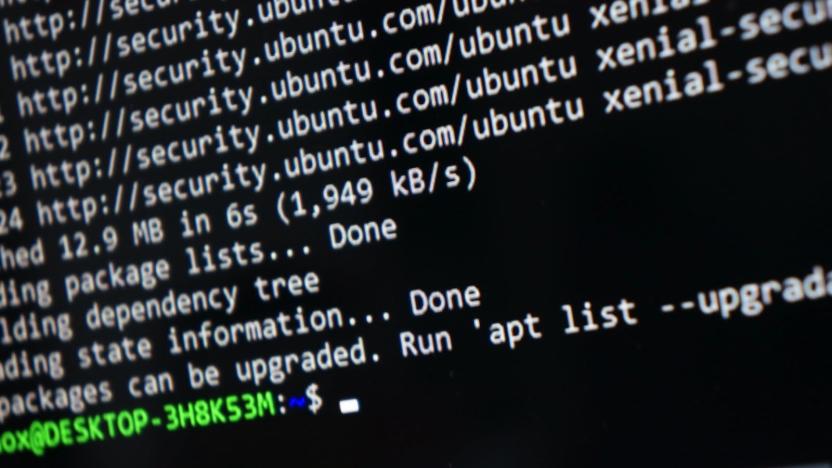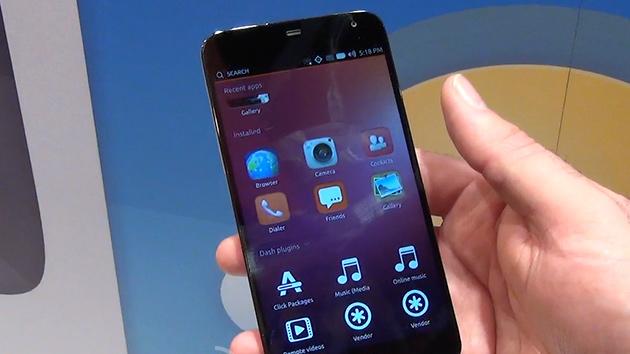Canonical
Latest

Dell's XPS 13 Plus Developer Edition is the first laptop certified for Ubuntu 22.04 LTS
Dell's XPS 13 Plus Developer Edition is the first laptop to be certified for the Ubuntu 22.04 LTS version of Linux.

Canonical backtracks on pulling 32-bit support from Ubuntu Linux
Last week, Ubuntu announced it would end support for 32-bit applications, starting with its next release. But the decision was not well-received, especially by the gaming community, and Valve announced plans to drop support for Ubuntu in Steam. In response, Canonical (which produces Ubuntu) has decided to support select 32-bit i386 packages for Ubuntu versions 19.10 and 20.04 LTS.

Steam will stop supporting Ubuntu Linux over 32-bit compatibility
If you're a Linux gamer who prefers Ubuntu, you might want to look for another distribution in the near future. Valve is dropping official support for Ubuntu in Steam as of the operating system's upcoming 19.10 release, which will cut 32-bit x86 components. The Steam crew aims to "minimize breakage" for existing Ubuntu users, according to Valve's Pierre-Loup Griffais, but it'll shift its attention to another distribution in the future.

Spotify made it easier to install its app on Linux
According to Canonical, the company behind popular Linux distribution Ubuntu, Spotify just made it super simple for subscribers to install the music-streaming app on Linux machines. The company has just released a Spotify "snap," a universal app package that works across Linux flavors.

Ubuntu Linux is available in the Windows Store
Here's a statement that would have been unimaginable in previous years: Ubuntu has arrived in the Windows Store. As promised back in May, you can now download a flavor of the popular Linux distribution to run inside Windows 10. It won't compare to a conventional Ubuntu installation, as it's sandboxed (it has limited interaction with Windows) and is focused on running command line utilities like bash or SSH. However, it also makes running a form of Linux relatively trivial. You don't have to dual boot, install a virtual machine or otherwise jump through any hoops beyond a download and ticking a checkbox.

A top Meizu phone can't hide Ubuntu's flaws
The last 12 months have been disastrous for the minor league of mobile operating systems. Jolla's Sailfish OS has started to capsize, while Blackberry has all but abandoned BlackBerry 10 for Android. Firefox OS, at least on phones, is but a few dying embers and Windows 10 Mobile has arrived with a muffled thud. Does Canonical and Ubuntu share the same fate? Perhaps, although the pair are fighting defiantly this month with a new flagship phone, courtesy of the Chinese manufacturer Meizu.

Meizu unveils the most powerful Ubuntu phone yet
Once again, it's the Chinese smartphone manufacturer Meizu that's helping Canonical sell its vision of an Ubuntu handset. Following the MX4, the company has unwrapped the "Ubuntu Edition" Pro 5, which promises the best spec sheet in an Ubuntu phone to date. That is, without you installing the platform on another device manually, anyway. It's a large handset, dominated by a 5.7-inch AMOLED display (1080p) and a small fingerprint sensor. Under the hood is an eight-core Samsung Exynos 7420 processor, backed up by either 3GB or 4GB of RAM, which varies depending on whether you choose 32GB or 64GB of internal storage.

Ubuntu's first tablet doubles as a desktop, goes on sale in Q2
Remember that time Spanish device maker BQ started promoting a new, Ubuntu-powered tablet before Canonical was ready to start talking about it? Well, the Ubuntu developer finally decided to get chatty. As expected, the device is a Ubuntu-fied version of BQ's existing Aquaris M10 tablet, with just about everything from the 10.1-inch display to the quad-core MediaTek MT8163A chipset left unchanged. The biggest difference centers on what Canonical calls "Convergence" — the updated M10 is the first bit of consumer Ubuntu hardware that acts like a full-blown PC when you connect a keyboard, mouse and display to it.

Ubuntu Phone review: years in the making, but still not consumer-ready
The smartphone arena is dominated by two operating systems. Gartner's latest figures show that during the first three months of 2015, iOS and Android devices accounted for almost 97 percent of global smartphone sales. With established alternatives from Microsoft and BlackBerry already fighting for the leftovers, there doesn't seem to be a whole lot of opportunity for new players. Canonical, maker of the popular Linux distro Ubuntu, is taking on the challenge regardless. With a version of Ubuntu built specifically for mobile, it's hoping to shake up the current duopoly with a fresh approach to content consumption. That's the plan, anyway, but after spending some time getting to know the OS, it's clear Canonical has a lot of work to do if Ubuntu Phone is ever going to be a viable option for even casual smartphone users.

The next Ubuntu phone is here, but you'll need an invite
Another Ubuntu phone, another unusual launch. After the BQ Aquaris E4.5, which debuted with a series of online flash sales, Canonical is following up with an invite-only handset built by Meizu. Yep, the same Meizu that once hoped to release an Ubuntu phone in 2014. The new MX4 "Ubuntu Edition" has been available to developers in China since May, but starting tomorrow you'll be able to order one in Europe too. At least, you will if you're lucky enough to receive an invite. Canonical and Meizu aren't revealing how many will be available each day, so you'll just have to visit their teaser site, complete the "origami wall" and hope for the best. The company is also staying tight-lipped about whether the invite system will eventually be dropped and if the MX4 will later be sold in other markets.

Latest Ubuntu hits the web with mostly minor refinements
Today's release of Ubuntu 15.04 is yet another installment in the slow and steady march forward from Canonical. The company knows that not every OS release needs to be accompanied by fanfare and dramatic changes to your desktop. And this edition of the popular Linux distro perfectly epitomizes that philosophy. There are basically zero user-facing interface changes, except for the ability to set application menus to always show, instead of only popping up when you mouse over them. Otherwise most of the changes are under the hood. The OS should be faster and more stable, thanks to updates to updates to the underlying system, like the Unity desktop and Linux kernel. The default apps also got some minor version bumps, including Firefox and LibreOffice.

Ubuntu's answer to Android is finally here, but it still needs work
At long last, the first Ubuntu phones are here. It's been more than two years since Canonical first showed off its Linux-based mobile platform, and fans have been clamoring for consumer devices ever since. The Ubuntu Edge never made its ambitious $32 million crowdfunding target, and the first handsets from BQ and Meizu were delayed last year. But finally, it's all starting to come together. BQ has started selling its "Aquaris E4.5 Ubuntu Edition" in Europe and Meizu shouldn't be too far behind with its modified MX4.

The first Ubuntu phone arrives next week, but there's a catch
It's been a long time coming, but finally Canonical is ready to release its first Ubuntu phone. After teaming up with Meizu and BQ almost a year ago, we're getting a (sort of) new handset from the latter; it's actually a repurposed version of its Aquaris E4.5, a mid-range smartphone that normally ships with Android. The new "Ubuntu Edition" keeps all of the same hardware, which is nothing to write home about. It has a 4.5-inch, 540x960 resolution display, a 1.3GHz quad-core MediaTek Cortex A7 processor, 1GB of RAM and 8GB of internal storage. For shutterbugs, there's also a 8-megapixel rear-facing camera and a 5-megapixel snapper on the front. At €169.90 ($195), the specs are pretty unremarkable.

Ubuntu Linux is now ready to power your appliances and robots
Ubuntu Linux has spread to quite a few platforms in its 10-year history, if not always successfully. Today, though, the open source software is tackling what could be its greatest challenge yet: the internet of things. Canonical has released a version of its stripped-down snappy Ubuntu Core for connected devices like home appliances, robots and anything else where a conventional PC operating system wouldn't fly. It's designed to run on modest hardware (a 600MHz processor will do) and provide easy updates, all the while giving gadget makers the freedom to customize the software for whatever they're building. It promises to be extra-reliable, too -- it only applies updates if the code checks out, so you won't lose control of your smart thermostat due to a buggy upgrade.

Ubuntu turns 10 with its latest release
Don't look now, but one of the staples of the open source world just marked a big birthday. Canonical has released Ubuntu 14.10, officially making this friendlier Linux distribution 10 years old. The company is clearly happy with a low-key celebration; 14.10's biggest addition is a developer tool center that makes it easier to write Android apps, while you'll also find support for zero-setup printers and 64-bit ARM chips. Not exactly riveting stuff, is it? Still, the release shows how far Ubuntu has come -- while there have been some rough patches in the last decade, the Canonical team can now focus most of its energy on refining a successful formula.

Netflix support comes to Ubuntu through Chrome
We told you it was coming, and now it's here! Canonical announced today that its popular Linux distro Ubuntu now supports Netflix playback through Chrome. If you're running a fully updated install of Ubuntu 12.04 LTS, 14.04 LTS or later you can simply go install Chrome 37 right now and immediately start enjoying Netflix. (Provided you're a paying subscriber, of course.) There's no word on if or when support might be coming to other browsers, so sorry Firefox fans. That being said, Mozilla is one of the main contributors to Network Security Services, which is key to Netflix support on Linux, so it probably won't be too far behind.

Rest in peace Ubuntu for Android, we hardly knew ye
We can't say that the future of Ubuntu for Android ever looked particularly bright, but we were enamored with the concept. You'd walk around by day with a standard-issue Android phone in your pocket, but when you docked it to a keyboard, mouse and monitor, you were greeted with a full Ubuntu desktop experience. Well, Canonical has decided to put the project out to pasture apparently. Buried away in a recent bug report (now hidden from public view) was the fact that "Ubuntu for Android is no longer in development," and thus its landing page should be taken offline. Though some responses from the Canonical team appear to muddy the story, the take away is the same -- active development on Ubuntu for Android has come to a halt. It's not surprising considering that the company has invested heavily in its own smartphone OS, which already has a few OEMs signed on. Without a launch partner, the dual-boot solution never had a chance to take off, and Canonical clearly has other priorities now. Still, we mourn slightly for its passing. Here's hoping the concept lives on as an all-Ubuntu solution.

Ubuntu 14.04 is ready for a world filled with high-resolution touchscreens and tablets
Has it truly been six months already? It feel like just yesterday we were kicking the tires on a fresh install of Saucy Salamander. Now Canonical is pushing out the latest version of its popular Linux distro. Ubuntu 14.04 LTS (code named: Trusty Tahr) is part of its long term support series which means it will receive support and security updates for five years rather than the usual nine months. That's a major deal for companies using either on desktops and servers. But servers and enterprise desktops aren't where the excitement lies. What makes Trusty a huge deal for Canonical is that it finally makes the OS ready to use on touchscreens, high DPI displays and tablets. Until now Ubuntu didn't scale properly on high resolution displays (which this editor discovered the hard way when he installed it on his shiny new Carbon X1). The bigger news though is that 14.04 marks the first stable version of Ubuntu for tablets. The OS is packing a number of improvements to its touchscreen support, which will be essential when commercial tablets hit the market, which Canonical suggest will be happening this year in its press release. You can go download Ubuntu 14.04 now for free.

Canonical shutters Dropbox competitor Ubuntu One
Canonical announced plans today to shut down its Dropbox competitor Ubuntu One, a move that will also signal the end of its streaming music service. "If we offer a service, we want it to compete on a global scale," CEO Jane Silber noted in a blog post. "For Ubuntu One to continue to do that would require more investment than we are willing to make." Rather than compete with other cloud services that routinely offer substantial amounts of free storage, the company has instead decided to focus efforts on its operating system. Storage and music are no longer available for purchase from the Ubuntu One Store starting today. Existing customers can use the service until June 1st, while stored content will be available to download through July 30th. Annual subscribers, meanwhile, can expect a prorated refund soon.

What to expect from the first generation of Ubuntu smartphones (hands-on)
The Ubuntu Touch smartphone OS has come a long way, but it still has further to plod before it's ready for market - all Canonical will tell us that it hopes to see an Ubuntu phone before the end of this year. Nevertheless, now that some phone manufacturers are on board with the project, we've been able to play with a couple of prototypes: One was just a non-functioning handset from a Spanish company called BQ, showing off plain but solid build quality reflective of a mid-tier device. The other was more interesting -- a re-purposed Android handset from a second Ubuntu partner, Meizu, which makes light work of the operating system and interface. The UI itself hasn't changed a great deal since we last tried it, and neither has the underlying mission, which is to create an OS that extends seamlessly across phones, tablets and PCs, with virtually the same apps running on each type of screen. Check out the hands-on video below to get a better of what Canonical is aiming at, or -- if you don't mind getting your hands dirty -- try the new dual-boot developer preview for yourself on an Android handset.









